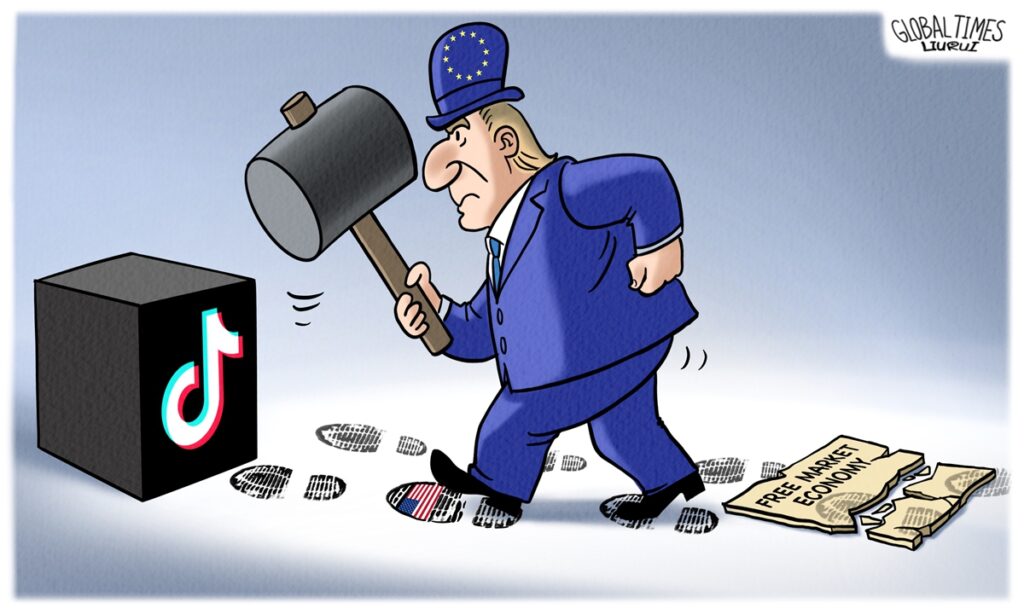TikTok is in the spotlight once again, as German Chancellor Olaf Scholz was quoted by media outlets as saying that he wants the government to open an account on the Chinese video-sharing app. It is hoped that Western economies can take this as a chance to promote positive interactions with TikTok and foster a fair, transparent and predictable environment for Chinese companies.
The West’s suppression of TikTok is a sheer act of discrimination in the guise of so-called national security. A spokesperson for the German government said on Friday that Berlin still needed to check the situation thoroughly before launching an account, and members of the federal press office could not access the app on their government phones, Reuters reported.
This situation is unlikely to change immediately, but efforts should be made to tackle discrimination. At the very least, Germany should lift its ban on TikTok and allow government employees to have the app on their work phones.
A ban on TikTok won’t solve so-called data privacy problems. On the contrary, it will bring new problems and challenges.
First, if TikTok, the world’s most popular video-sharing app, is blocked from Western countries, content creators will suffer significant losses. With TikTok, some influencers are earning substantial amounts of money, many of whom are young people. The internet provides not only a way to cheaply obtain entertainment, but also offers economic opportunities for young people who are more willing to accept new ideas and changes.
Second, protectionist sentiment won’t help the internet economy, and will instead impede its growth. A ban on TikTok will restrain market competition, and slow down the development of the internet economy.
Reuters said in its report that parties such as the Alternative for Germany are already leveraging the TikTok platform to connect with younger voters. However, whether it’s a political party in Germany or in other Western countries, if it wants to win young voters, it is not enough to just open a TikTok account. It should give a boost to the internet economy, encourage fair competition, and stop unreasonable suppression of advanced enterprises, including TikTok.
Germany should adopt a strategy to encourage TikTok to invest. Germany’s economy has had a rough year: its GDP shrank by 0.3 percent in 2023. Germany, at the forefront of industrial innovation for decades, is struggling to adapt to the digital age.
The German economy needs to find new growth drivers. The development of new productive forces can cultivate new economic growth drivers and competitive advantages, and provide new impetus for its economy.
In countries like China, the commercialization of internet technologies is pushed by big enterprises such as TikTok’s owner ByteDance. Their commercial success is an example of how the commercialization of internet technologies is speeding up.
Industry 4.0 represents the fourth industrial revolution, driven by the fusion of digital technologies with traditional manufacturing processes. Germany should strengthen cooperation with China in the field of Industry 4.0, which will help leverage Germany’s industrial advantages.
If Germany falls into Washington’s narrative trap of “national security” and continues to suppress TikTok and other Chinese enterprises, it will miss important cooperation opportunities with China’s internet industry.
It will be a test of Germany’s wisdom to see if it can capitalize on business opportunities arising from bilateral cooperation with Chinese internet companies and make the cooperation a positive factor for its economic restructuring.
From this perspective, whether the German government will open a TikTok account is not the most important thing. For the German economy, the most important thing is that Germany should lift its ban on TikTok, create and maintain a fair, competitive business environment for Chinese internet enterprises, and encourage both sides to strengthen cooperation in the fields of the internet and the digital economy.
(Global Times)



